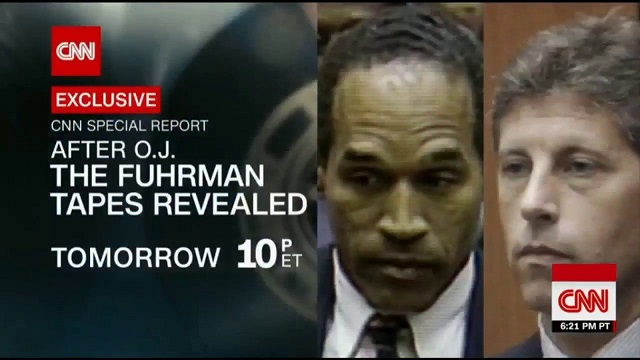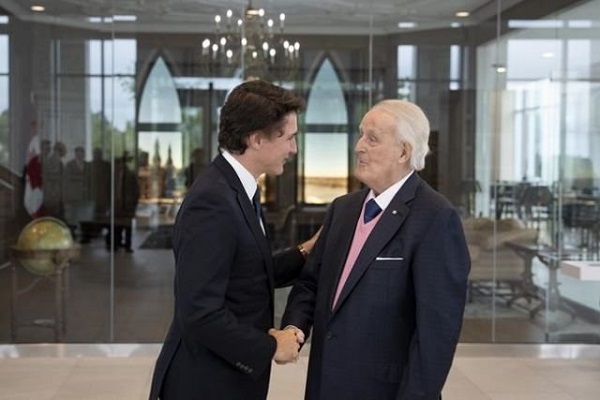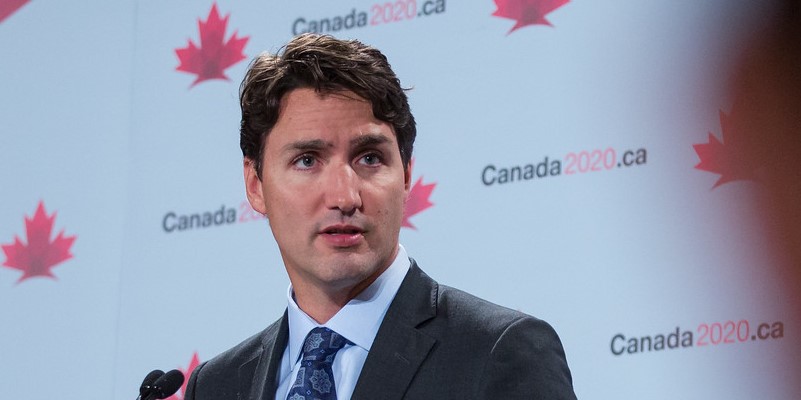Alberta
What is the Great Reset?

We are nearing one full year since the outbreak of the COVID-19 pandemic began sweeping the globe, ravaging all major industries worldwide and forcing the global economy to grind to a near halt. 2020 has been dominated by social and political upheaval as officials have struggled to find the balance between economic lockdown and protecting the public from the virus. Adding to the uncertainty, disinformation is circulating at an unfathomable rate. Heading into December, tension and mistrust appear to be at an all time high as individuals and groups have begun to rebel against lockdown orders and what many believe to be government forces overstepping their democratic boundaries.
Among the hype and hysteria, the “Great Reset” has become a popular and highly divisive topic in recent months. Aggressive disagreements have broken out among experts, political leaders and the general public, often citing controversial buzzwords like “socialism”, “government control”, and “elite agenda”. In this setting, it has become increasingly difficult to determine what is fact and what is fiction, as fear and confusion fuel conspiracy theories and government distrust.
 COVID-19: The Great Reset is a book originally published in July 2020, co-authored by Thierry Malleret, founder of the Monthly Barometer, and Klaus Schwab, founder and Executive Chairman of the World Economic Forum (WEF). This book elaborates on a recovery plan proposed by the WEF that presents the global COVID-19 pandemic as an opportunity to correct the shortcomings of the existing social, economic and political institutions around the world. According to the WEF, “The inconsistencies, inadequacies and contradictions of multiple systems – from health and financial to energy and education – are more exposed than ever amidst a global context of concern for our lives, livelihoods and the planet.”
COVID-19: The Great Reset is a book originally published in July 2020, co-authored by Thierry Malleret, founder of the Monthly Barometer, and Klaus Schwab, founder and Executive Chairman of the World Economic Forum (WEF). This book elaborates on a recovery plan proposed by the WEF that presents the global COVID-19 pandemic as an opportunity to correct the shortcomings of the existing social, economic and political institutions around the world. According to the WEF, “The inconsistencies, inadequacies and contradictions of multiple systems – from health and financial to energy and education – are more exposed than ever amidst a global context of concern for our lives, livelihoods and the planet.”
 Within this setting, the WEF calls for collaboration among experts and world leaders to propose and implement a vision for the future that will “build a new social contract that honors the dignity of every human being.” The values highlighted by the Great Reset propose an ideological shift away from capitalism. This includes shifting the global focus towards fairer market outcomes, the advancement of sustainability measures and the improvement of environmental, social and governance (ESG) metrics across industries.
Within this setting, the WEF calls for collaboration among experts and world leaders to propose and implement a vision for the future that will “build a new social contract that honors the dignity of every human being.” The values highlighted by the Great Reset propose an ideological shift away from capitalism. This includes shifting the global focus towards fairer market outcomes, the advancement of sustainability measures and the improvement of environmental, social and governance (ESG) metrics across industries.
 The Great Reset global agenda calls for unprecedented cooperation among countries and industries around the world to unite under one recovery strategy aimed at repositioning the current trajectory of society as a whole. “Rather than using recovery funds to fill cracks in the old system,” says Klaus Schwab, founder and executive chairman of the World Economic Forum, “we should use them to create a new one that is more resilient, equitable, and sustainable in the long run.”
The Great Reset global agenda calls for unprecedented cooperation among countries and industries around the world to unite under one recovery strategy aimed at repositioning the current trajectory of society as a whole. “Rather than using recovery funds to fill cracks in the old system,” says Klaus Schwab, founder and executive chairman of the World Economic Forum, “we should use them to create a new one that is more resilient, equitable, and sustainable in the long run.”
The World Economic Forum’s Great Reset initiative has received support from several influential organizations around the world, including TIME Magazine, Apple and Microsoft. However, while it appears many have signed onto this initiative as a unique opportunity to build a prosperous future for all members of the human race, an equal number have emerged to furiously oppose it.
Opponents of the Great Reset have labeled it as a radical socialist agenda being pushed on the masses by global elites. The initiative has been extensively criticized for appearing to use the global upheaval inflicted by the pandemic to implement social and economic measures not approved by the democratic process. An article released by the Post Millennial accused the WEF of using the “blunt force trauma of the pandemic to force the world to reshape according to socialist dictates.” This mentality has been echoed by a number of individuals and organizations around the world.
The National Review criticized Schwab’s book, COVID-19: The Great Reset, for having “undeniably authoritarian subtext” on which no legitimate societal transition should be based.
 These opposing viewpoints on the legitimacy and intentions of the Great Reset have led to extreme backlash for political leaders who appear to support the initiative in any way. On September 29, 2020, Prime Minister Justin Trudeau landed himself in hot water during his United Nations address, where he spoke of the impacts of the pandemic and the way forward for Canada. “This pandemic has provided an opportunity for a reset,” he said, “This is our chance to accelerate our pre-pandemic efforts, to reimagine economic systems that actually address global challenges like extreme poverty, inequality, and climate change.”
These opposing viewpoints on the legitimacy and intentions of the Great Reset have led to extreme backlash for political leaders who appear to support the initiative in any way. On September 29, 2020, Prime Minister Justin Trudeau landed himself in hot water during his United Nations address, where he spoke of the impacts of the pandemic and the way forward for Canada. “This pandemic has provided an opportunity for a reset,” he said, “This is our chance to accelerate our pre-pandemic efforts, to reimagine economic systems that actually address global challenges like extreme poverty, inequality, and climate change.”
Trudeau’s address was swiftly condemned by many, as certain onlookers accused the Prime Minister of supporting the global elitist plan to collapse the economy and renege on Canadian rights and freedoms.
 In November 2020, in response to Trudeau’s UN address, Conservative Member of Parliament Pierre Poilievre launched a petition called Stop the Great Reset. The petition calls on Canadians to “fight back against global elites preying on the fears and desperation of people to impose their power grab”. The petition received more than 60,000 signatures in a matter of days.
In November 2020, in response to Trudeau’s UN address, Conservative Member of Parliament Pierre Poilievre launched a petition called Stop the Great Reset. The petition calls on Canadians to “fight back against global elites preying on the fears and desperation of people to impose their power grab”. The petition received more than 60,000 signatures in a matter of days.
As governments and politicians around the world struggle to respond to the ongoing conditions of the pandemic under increasingly bleak circumstances, the consumption and circulation of accurate, credible information becomes increasingly important with each passing day. As businesses in every industry continue to go under and more and more individuals lose their livelihoods, the propagation of disinformation and fear serves only to divide and isolate us further. Whether you subscribe to the theory of the Great Reset as a legitimate avenue towards the creation of a healthier post-pandemic society, or as an illegitimate attack on democratic rights and freedoms, it is paramount to seek credible information.
Should we encourage our governments and politicians to adopt a Great Reset? Is it best to reinvigorate our economies? Or do we look to a combination of these two ideologies?
For more stories, visit Todayville Calgary.
Alberta
Danielle Smith warns arsonists who start wildfires in Alberta that they will be held accountable

From LifeSiteNews
The Alberta government has created an ad campaign highlighting the fact that most fires are caused by humans and not ‘climate change,’ as many left-leaning politicians claim.
In preparation for the so-called wildfire “season,” Alberta Premier Danielle Smith sternly warned anyone caught starting blazes in her province, including arsonists, that they will face charges and be held fully “liable” for all costs associated with the fires.
“As we approach the wildfire season, it is important to understand that 67% of wildfires in Alberta are started by people,” Smith posted Monday on X.
“If you start a wildfire, you can be charged, fined, and held liable for all costs associated with fighting the wildfire.”
Smith made the comments after last year revealing that most of the wildfires in her province (500 of the 650) were caused by humans and not “climate change,” as has been pushed by the legacy media and opposition politicians.
“All I know is in my province we have 650 fires and 500 of them were human caused,” she said, “so we have to make sure that when people know that when it’s dry out there and we get into forest fire season that they’re being a lot more careful because anytime you end up with an ignition that happens it can have devastating consequences.”
To go along with Smith’s Monday message, the Alberta government has also created an ad campaign highlighting the fact that most fires are caused by humans and not “climate change,” as many left-leaning politicians claim.
As reported by LifeSiteNews last year, Smith ordered arson investigators to look into why some of the wildfires that raged across the vast expanse of the province had “no known cause” shortly after they spread.
During the campaign of Alberta’s 2023 election, Smith, whose United Conservative Party won a majority government, had to pause to deal with many wildfires that suddenly, out of nowhere, ravaged the province. The fires came on suddenly and uncharacteristically considering the heavy snowfall in the province in early March and rain in April.
LifeSiteNews reported that despite the arrest of multiple arsonists, Canada’s mainstream media and the federal government have been pushing a narrative attributing the recent wildfires to “climate change.”
Indeed, in January, LifeSiteNews reported that a man from Quebec admitted to starting 14 forest fires himself. This put a chill to the legacy media’s push that the fires in the province were caused by “climate change.”
However, statistics from Canada’s National Fire Database show that wildfires have gone down in recent years and peaked in 1989.
As for Canadian Prime Minister Justin Trudeau, he has repeatedly used “climate change” and forest fires as a catalyst for propping up his government’s much-maligned carbon tax, which Smith opposes. He has blamed the fires on “climate change.”
A June 2017 peer-reviewed study by two scientists and a veteran statistician confirmed that most of the recent global warming data have been “fabricated by climate scientists to make it look more frightening.”
Trudeau has been calling for increased bans on Canada’s natural resources, of which Alberta has in abundance.
Smith has vowed to fight Trudeau on his attacks against Alberta’s oil and gas industry.
The reduction and eventual elimination of so-called “fossil fuels” and a transition to unreliable “green” energy has also been pushed by the World Economic Forum (WEF), the globalist group behind the socialist “Great Reset” agenda in which Trudeau and some of his cabinet are involved.
Alberta
Free Alberta Strategy backing Smith’s Provincial Priorities Act
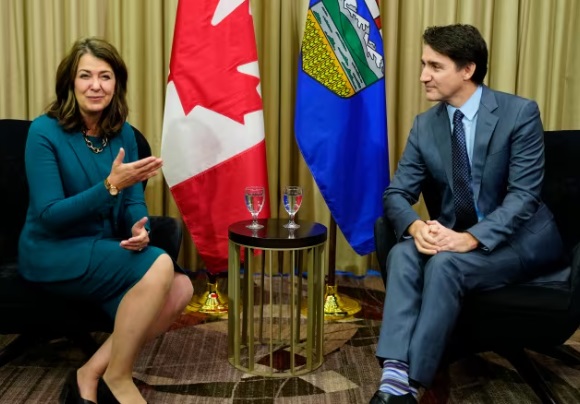
News release from Free Alberta Strategy
Premier Danielle Smith had a message for Ottawa last week.
Keep out.
On Wednesday, the Premier rolled out her latest weapon in the fight against federal intrusions into provincial jurisdiction.
If passed, Bill 18 – the Provincial Priorities Act – aims to align federal funding with provincial priorities, ensuring that said funding reflects Alberta’s interests.
The legislation stipulates that any agreements between the federal government and any provincial entities – including municipalities – must receive provincial approval to be considered valid.
Smith has already given it a nickname: “the stay-out-of-my-backyard bill.”
It’s an apt description of the legislation, especially considering that’s what the federal government has been doing for years – encroaching into Alberta’s jurisdiction.
The legislation shouldn’t come as a surprise to anyone.
We all know that most deals the Alberta government enters into with the federal government don’t work out for Albertans.
We end up paying more in federal taxes than gets spent in federal spending on the programs.
The programs come laden with restrictive conditions that undermine our autonomy, and are often detrimental to our ability to provide the services.
This is especially true with regard to the recent agreement between Ottawa and the provinces that allows the federal government to nationalize childcare.
The childcare agreement has come under heavy criticism due to funding shortfalls in the deal.
It also applies to housing, where despite Alberta accounting for 12% of the national population and experiencing the most rapid population growth, it received a mere 2.5% of the total $1.5 billion in federal housing funding last summer.
Jason Nixon, Minister of Seniors, Community and Social Services, is in charge of housing in Alberta – which is provincial jurisdiction.
On the latest rollout of conditional federal housing handouts, Nixon isn’t buying.
“We will not be bribed, with our own money, to increase the time it takes to get homes built with green energy that makes homes more expensive.”
The theory also applies to the federal government’s latest gambit – doing an end-around provincial negotiations and going directly to municipalities, who seem more interested in taking the money than the conditions attached.
Municipalities are provincial jurisdiction.
Bill 18 mandates that entities within Alberta’s jurisdiction, such as municipalities, universities, school boards, housing agencies, and health authorities, must seek the province’s approval before engaging in, modifying, extending, or renewing agreements with Ottawa.
Agreements between the federal government and provincial entities lacking Alberta’s endorsement will be deemed illegal under this legislation.
That’s Premier Smith’s message.
She’s had enough of it.
“It is not unreasonable for Alberta to demand fairness from Ottawa. They have shown time and again that they will put ideology before practicality, which hurts Alberta families and our economy. We are not going to apologize for continuing to stand up for Albertans so we get the best deal possible.
“Since Ottawa refuses to acknowledge the negative impacts of its overreach, even after losing battles at the Federal and Supreme Courts, we are putting in additional measures to protect our provincial jurisdiction to ensure our province receives our fair share of federal tax dollars and that those dollars are spent on the priorities of Albertans.”
Municipal Affairs Minister Ric McIver had additional thoughts:
“For years, the federal government has been imposing its agenda on Alberta taxpayers through direct funding agreements with cities and other provincial organizations. Not only does Alberta not receive its per capita share of federal taxpayer dollars, the money we do receive is often directed towards initiatives that don’t align with Albertan’s priorities.
“Albertans from all corners of the province expect our federal share of taxes for roads, infrastructure, housing and other priorities – not federal government political pet projects and programs in select communities.”
The Provincial Priorities Act is based on existing provincial legislation in Quebec – called “An Act Respecting the Ministère du Conseil executif” – which prohibits any municipal body from entering into or negotiating an agreement with the federal government or its agencies without express authorization from the Quebec government.
That’s right – the Quebec government has the same rule!
So, this boils down to the same argument we’ve been making for years – if Ottawa wants to step into our backyard, it must first seek Alberta’s approval.
Enough is enough – we won’t stand idly by as our interests are trampled upon.
It’s time for Ottawa to recognize Alberta’s autonomy and respect our right to determine our own future.
At the Free Alberta Strategy, we know that constant vigilance is necessary – for every fence we put up, the federal government tries to find a way around it.
We’ll continue to bring you information about what’s happening in Alberta’s backyard and fighting to keep Ottawa out.
The Free Alberta Strategy Team
-

 Economy5 hours ago
Economy5 hours agoExtreme Weather and Climate Change
-

 Economy2 days ago
Economy2 days agoFederal budget: You can’t solve a productivity emergency with tax hikes
-
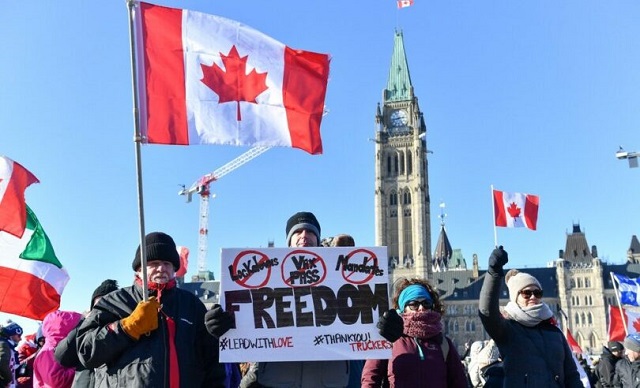
 Freedom Convoy23 hours ago
Freedom Convoy23 hours agoTrudeau’s use of Emergencies Act has cost taxpayers $73 million thus far
-
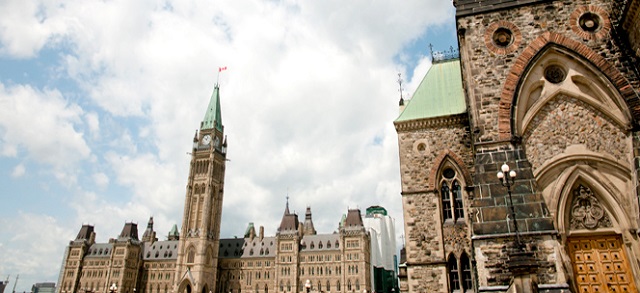
 Economy2 days ago
Economy2 days agoMassive deficits send debt interest charges soaring
-

 Business1 day ago
Business1 day agoBusiness investment key to addressing Canada’s productivity crisis
-
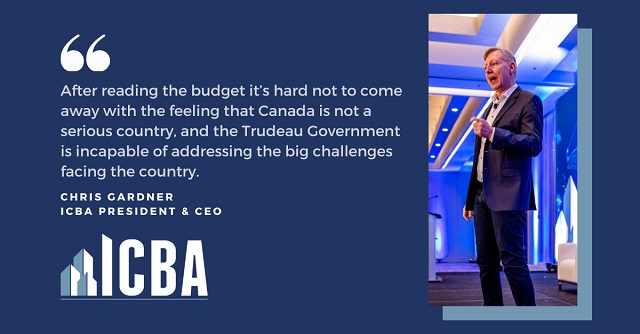
 Business1 day ago
Business1 day agoDoubling Down on Missing the Mark
-

 Jordan Peterson1 day ago
Jordan Peterson1 day agoJordan Peterson slams CBC for only interviewing pro-LGBT doctors about UK report on child ‘sex changes’
-
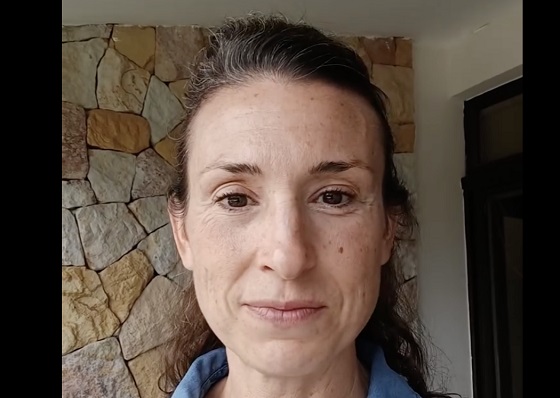
 COVID-192 days ago
COVID-192 days agoPro-freedom Canadian nurse gets two years probation for protesting COVID restrictions

